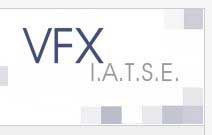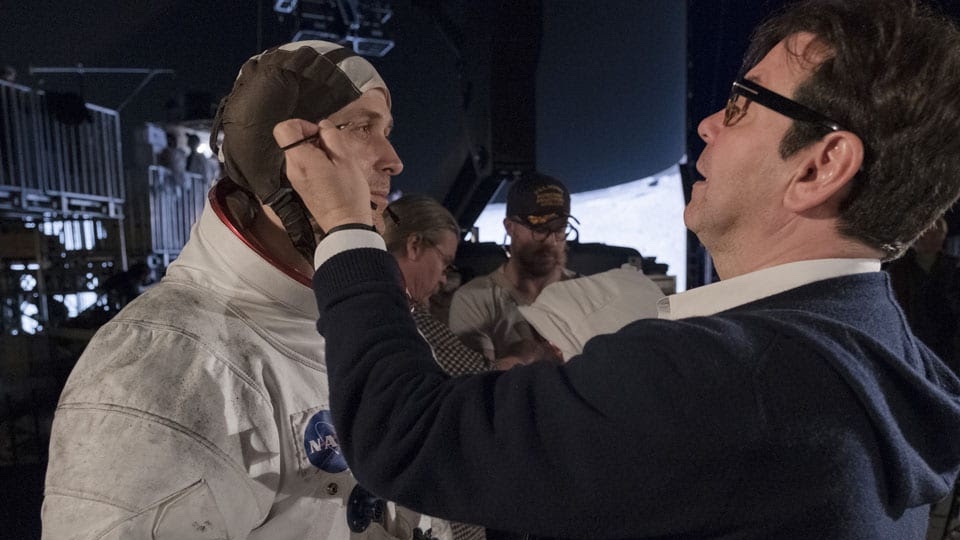 “The IA,” according to organizer Peter Marley, “has become more political than it was in the past.” Marley was speaking over Mother’s Day weekend on a podcast at the redoubtable FXGuide website, more or less officially announcing an initiative that broke last week via the arrival of a website: Namely that after years of talk on the subject, IATSE is openly recruiting visual effects workers to come join a union.
“The IA,” according to organizer Peter Marley, “has become more political than it was in the past.” Marley was speaking over Mother’s Day weekend on a podcast at the redoubtable FXGuide website, more or less officially announcing an initiative that broke last week via the arrival of a website: Namely that after years of talk on the subject, IATSE is openly recruiting visual effects workers to come join a union.
It’s a propitious moment for such a move: FX extravaganza The Avengers reached the billion dollar box office mark this weekend, meaning all those freelancing digit wranglers in all those post houses are, perhaps, the most critical components to the future of studio box office.
At the same time, we’re also just a few days past May Day in a spring where worker and working class sensibilities have upended top down-imposed “austerity” programs in both French and Greek elections, and an emboldened sense of worker and citizen rights – encapsulated stateside by the “Occupy” movement.
So if the IA is more political than it has been in the past (or at least, since the 1930s), it wouldn’t be surprising. The times lend themselves to it.
Towards this end, the IA launched a website to inform and cajole many digital laborers toward union membership. You can find it at http://vfx.iatse-intl.org/. Among its front page mission statements is the admonition that the IA is “uniquely qualified to represent freelance employees. Most of our members work for multiple employers during the course of a year. For these workers it is critical to provide health and retirement funds that are portable.”
In a way, that’s the crux of the entire “spring fever” gripping the globe: All work, now, is “portable,” and transient and probably temporary. We have seen the postproduction workers, and they are us. How does one organize in a such a climate?
Steve Kaplan is an organizer for IA’s Local 839 – the Animation Guild. Many of those workers are, ironically, already unionized in a time where, in the age of rendering, the dividing line between “animation” and “every other movie” is becoming increasingly blurry.
Kaplan applauds the efforts to organize FX workers, telling Below the Line that “839 is in the unique position of representing the craft that is closely related to visual effects. Arguably, computer generated imagery is the natural technological progression from hand-drawn animation. Many of our members use the same skills, techniques and tools that are found in visual effects shops around the world. As 839’s organizer, I can say that we stand behind the goals of the International and regularly support their efforts when we’re called upon to do so. I am proud to be working with International representatives Peter Marley and (West Coast IA rep) Vanessa Holtgrewe in supporting the organization effort in place at Sony Pictures Imageworks.”
Of course, organizing Imageworks – which Kaplan refers to specifically – would be of great importance to IA’s efforts, as they occupy the “elite” strata of post houses, also famously occupied by facilities like ILM and Weta.
Would those workers want to organize? Would they need to? And what of the middle tier shops, and the workers in tech-savvy, union-deprived locales like India and China, who, seemingly, will always take “outsourced” work flowing toward the lowest hourly wage? Would they organize if it threatens the business model that keeps them employed?
On top of which, how will the IA be able to handle its own internal contradictions, given that the “I” stands for “International,” when the needs of workers in Vancouver and London (where they already have decent health care provided by their governments) conflict with those in Los Angeles or San Francisco?
In his podcast interview, Marley also discussed whether unions going after presumed “trade violations” – in the form of incentives, (by which we mean government subsidies) – should be something that unions fight in the same way they take on “piracy.”
But that would mean, of course, taking on governments themselves, and their tax policies, and to some degree a country’s own social structures. A country that doesn’t imagine itself policeman to the world is, by definition, freer to devote resources to subsidies that attract various kinds of businesses to its shores.
It would also mean conflicts between workers who have jobs in those places where there are subsidies, and those in places where there aren’t.
Those contradictions are summed up by VES Chair Jeffrey Okun, who talks of the Visual Effects Society’s own role in such organizing (or lack thereof) when he says that “the only way the VES can get involved in a meaningful way is if someone takes the work off the planet.”
Which would kind of be a visual effect in itself. The point being that VES has workers everywhere – from union-prone Los Angeles, to union-less Bangalore. So whose interests are going to be best served?
Yet if the “Prague Spring” of Occupy and its discontents has said anything, it may be that it’s time to consider that a rising tide may, in fact, lift all boats. Whether the IA can make that case in every back bay and lagoon where workers wrangle digits, remains to be seen.
But as Marley observed in the podcast, the “entire entertainment industry is a freelance industry and we all know that.”
And in a world where every industry and worker are, ultimately, “freelance,” it will be fascinating to see to what degree that work, which is technologically cutting edge, can be similarly cutting edge in terms of workplace organizing, and how benefits flow to the workers themselves.
Comments and feedback to IA’s somewhat surprise initiative continue to pour in to Below the Line at deadline time. Stay tuned! And drop us a line: [email protected]





